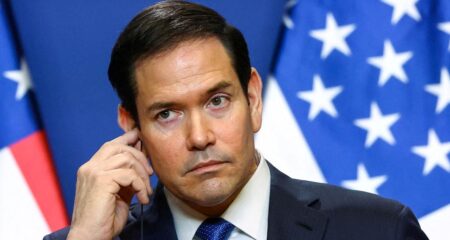
The news on Monday morning that Google and US chip makers have frozen the supply of critical software and components to Huawei is a body blow to the Chinese telecommunications giant and one which will have severe consequences for businesses and consumers, including in South Africa.
The companies, complying with a crackdown by the Donald Trump administration, could severely harm Huawei, threatening the extraordinary rise of a firm that exemplifies China’s rise as a technological superpower. The move goes well beyond US attempts to keep Huawei from deploying next-generation 5G networks around the world, and will have real-world implications for the hundreds of millions of consumers who use Huawei devices, including tablets, smartphones, modems and PCs.
Reports on Monday say Google, Intel, Qualcomm, Xilinx and Broadcom will not supply Huawei with software and chip technology until further notice. It’s Google’s decision – forced on it by the US government – that may have the gravest implications for Huawei’s customers. But network operators will also feel the impact.
Though Android is an open-source operating system – meaning Huawei will continue to have access to the underlying software, including crucial security updates – Google’s move means it may no longer be able to access the wide range of popular apps and services offered by the Internet giant, including YouTube, Maps, the Chrome Web browser and even the Play store.
This isn’t too much of an issue in China, where Google doesn’t have an official presence and where Chinese consumers tend to use a raft of alternative services, but it’s very serious indeed for consumers outside China – including in South Africa – where the Google suite of Android apps is extremely popular.
If the ban lasts long, it will drive consumers away from the Huawei brand and into the arms of rivals such as Samsung Electronics and Apple. Details remain sketchy, but Google’s decision could also be bad news for existing Huawei customers, who may no longer get updates to Google apps. Could Huawei be forced to remove Google services from its handsets? It’s not clear yet.
Own operating system
It has been reported that Huawei has been developing a smartphone operating system of its own just for this eventuality. But whether that software will be a match for Android is far from clear. Also unknown is whether the software is ready for consumer release. We may be about to find out.
In chips, Huawei is arguably a little less exposed. It has invested billions of dollars designing its own silicon, and its latest high-end smartphones – including the flagship Mate 20 and P30 series – use the company’s own processors. But the move will still hurt Huawei badly – the company remains heavily dependent on US semiconductor technology, in everything from smartphones to laptops. One only has to look at Huawei’s smaller Chinese rival, ZTE, which was driven to the verge of bankruptcy by a similar move by the Trump administration in 2017 (the decision was later reversed after ZTE coughed up a US$1-billion fine), to see the potential fallout.

The US government has been steadily ratcheting up its assault on Huawei following the arrest in Canada of its chief financial officer, Meng Wanzhou, over alleged sanctions violations in Iran. This latest move represents a significant escalation in hostilities and is likely to provoke a fierce response from China. No one will emerge victorious from this fight. Don’t be surprised if China now retaliates by banning Apple or imposing severe restrictions on the company and other American firms – China is a crucial market for America’s largest smartphone maker, and a retaliatory move by Beijing would be very bad news for the iPhone maker.
These latest developments are ironic given that Trump’s political home, the Republican Party, has historically been in favour of globalisation and free trade. Trump’s war on Huawei represents a direct assault on these principles. Instead of competing with China fairly and squarely, the US government is regressing in a laager of tariffs and protectionism. Trump is undermining global commerce, and ultimately his administration’s belligerent approach will spur China to reduce its dependence on American technology products and services. In the longer term, this will damage US interests more than it will China’s. In the interim, this unnecessary fight will inflict enormous damage on the world economy and hurt consumers. It must stop. — © 2019 NewsCentral Media
- Duncan McLeod is founder and editor of TechCentral




